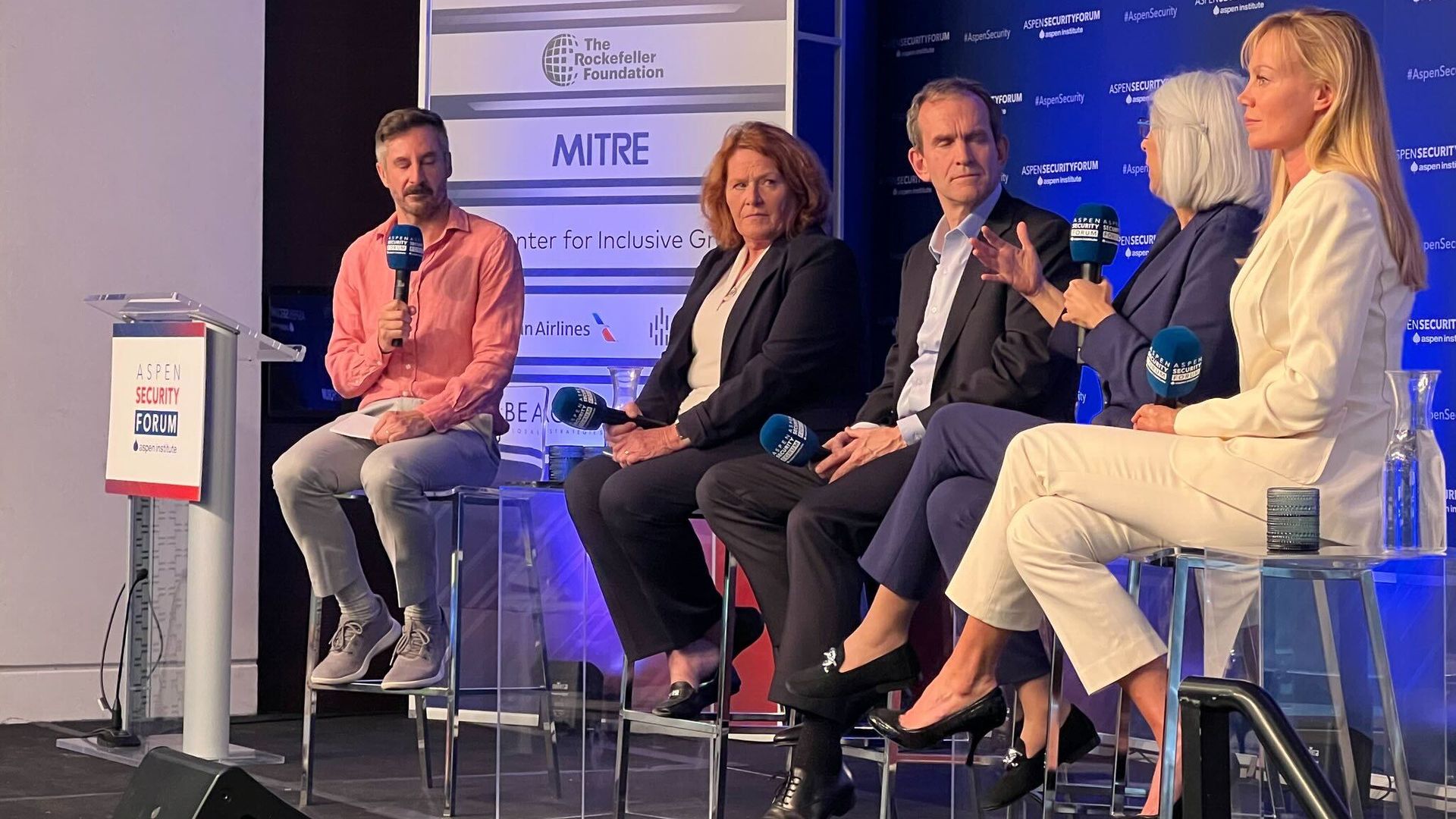Jul 20, 2023 - Technology
White House can't say what AI is safe
Add Axios as your preferred source to
see more of our stories on Google.

Axios' Ryan Heath, former Sen. Heidi Heitkamp, Google president Kent Walker, White House science policy head Arati Prabhakar and Aspen Security Forum director Anja Manuel. Photo: Aspen Security Forum
